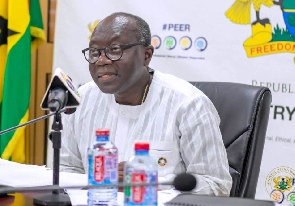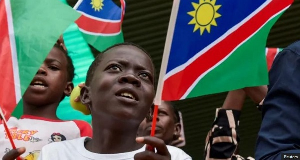The principals of eligible individual bondholders will not be touched in the debt exchange programme but the interests will get a haircut, Finance Minister Ken Ofori-Atta has noted in the ‘Invitation to Exchange’ to individual bondholders.
This invitation is to exchange certain domestic notes and bonds of the Republic of Ghana, E.S.L.A. Plc, and Daakye Trust Plc (collectively, the “Eligible Bonds”) for new bonds of the Republic of Ghana.
The exchange, the minister noted, will rather involve an exchange for new government of Ghana bonds with a coupon that steps up to rates ranging from 9.15% to 10.65% (depending on the specific series of new bonds) as soon as 2025 and longer average maturity.
The minister said the domestic debt exchange is part of a more comprehensive programme to restore debt and financial sustainability.
In the Amended and Restated Exchange Memorandum to individual bondholders, he noted: “The successful completion of this domestic debt exchange is a critical component of both the debt reduction programme and the International Monetary Fund programme discussions; it will contribute to unlocking the support of the international community and will allow Ghana to reach debt targets agreed with the IMF”.
“We need the full participation of all bondholders in this transaction. Anything less will not make us eligible for assistance. There can be no exception,” he added.
Apart from that, he said contingency plans have been prepared with applicable regulators to assist certain sectors of the economy (including the financial sector) after its participation in the exchange, to minimise negative spill-overs and safeguard the domestic economy including the establishment of a financial stability fund to provide a backstop for liquidity.
Mr Ofori-Atta said the alternative to the debt exchange would be a far worse economic crisis, with protracted closure from international markets including imported goods and services and further domestic economic instability both for the real economy and the financial sector.
“It would also mean depleted fiscal resources to support the neediest.”
“We are acutely aware of the upfront cost of this transaction, and other aspects of our adjustment programme, to participating holders. To that end we are carving out from this exchange treasury bills (up to one-year maturity) typically held by retail investors”, the minister explained.
“Further, there is also a positive trade-off for debtholders as a group: this transaction, though resulting in reduced coupon payments from 2023, will make a positive contribution to a safer and brighter future for all Ghanaians”, he argued.
Business News of Saturday, 31 December 2022
Source: classfmonline.com

















